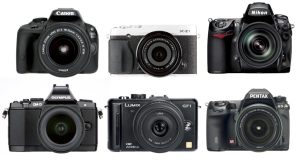Technology
- Technology is the use of conceptual knowledge to accomplish real-world objectives, particularly in a repeatable manner.[1] The term “technology” can also refer to the end products of such endeavors, [2][3], encompassing both material instruments like machinery or utensils intangible ones like software. In everyday life, science, and engineering, technology is essential.
- Society has changed significantly as a result of technological breakthroughs. According to the cooking hypothesis, the earliest known technology was the stone tool, which was employed in prehistory. This was followed by the ability to regulate fire, which helped the human brain grow and language develop throughout the Ice Age. Greater mobility and the development of increasingly sophisticated machinery were made possible by the Bronze Age invention of the wheel. The printing press, telephone, and Internet are examples of more modern technological innovations that have reduced communication barriers and brought about the knowledge economy.
- Although technology enhances human prosperity and promotes economic growth, it can also have unfavorable effects such
- The tools, processes, and techniques developed by humans to address issues, enhance lives, and accomplish particular goals are referred to as technology. It encompasses everything from basic instruments like hammers to sophisticated networks like the internet and artificial intelligence.
- Fundamentally, technology is the practical application of scientific knowledge in a variety of domains, including:
- Email, social media, the internet, and phones are all used for communication.
Transportation: automobiles, trains, aircraft, and ships.
Healthcare: medicines, biotechnology, and medical devices.
Energy: electrical grids, wind turbines, and solar electricity.
Entertainment options include virtual reality, video games, and streaming services.
Industry and Manufacturing: 3D printing, automation, and robots.
Rapid technological advancement frequently results in new inventions that alter how we - You seem to be asking “what technology” in a more general context. Depending on which sector of technology you’re interested in, it can vary greatly! Here are a few instances of several technological types:
- Technology that enables machines to imitate human intelligence and learn from data is known as artificial intelligence (AI) and machine learning (ML). Self-driving cars, recommendation engines, and chatbots are a few examples.
- Utilizing biological systems to develop new technologies, such as genetic engineering, medical gadgets, or medication development, is known as biotechnology.
- Designing and building robots that can carry out tasks on their own or with little assistance from humans is known as robotics. Manufacturing, healthcare, and even space exploration all make use of robots.
- Blockchain Technology: Often used for cryptocurrencies like Bitcoin, this decentralized technology securely records transactions.
- Quantum computing is a new area of computing that processes data at extraordinarily high speeds by utilizing quantum-mechanical phenomena.
- Green technologies are inventions that support sustainability, such wind, solar, electric cars, and energy-efficient structures.
- Virtual reality (VR) and augmented reality (AR) are technologies that use immersive virtual worlds (VR) or digital overlays (AR) to replicate or improve reality.
- Do you have a preference for any particular kind of technology? I would be pleased to discuss any of these in more detail!
Share this content:












